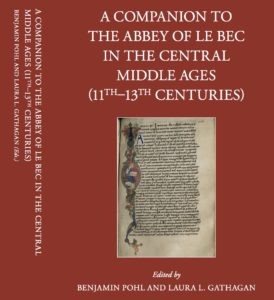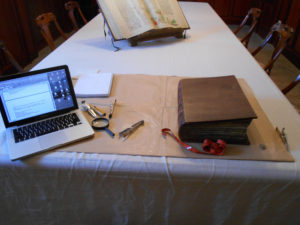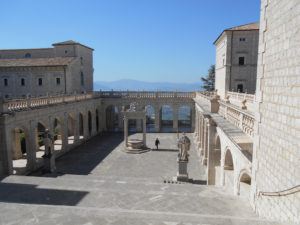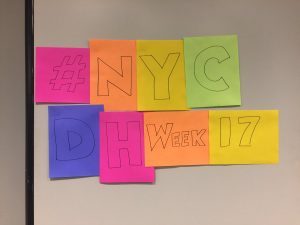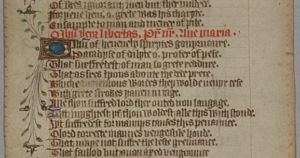We are absolutely delighted to announce that Fordham historians Scott Bruce and Yuko Miki are recipients of the 2020-2021 NEH fellowship. Below is a description of their fascinating projects.
Scott Bruce’s project is entitled, The Lost Patriarchs Project: Recovering the Greek Fathers in the Medieval Latin Tradition. Yuko Miki’s project is entitled, Brazilian Atlantic: Archives and Stories of Illegal Slavery.


The Lost Patriarchs Project: The influence of Greek patristics on western European thought and culture remains an important, but largely overlooked, aspect of the history of medieval Latin literature. The goal of my project is the creation of an instrument of reference called The Lost Patriarchs: A Survey of the Greek Fathers in the Medieval Latin Tradition. This book will present a catalogue of the deep, largely untouched, reservoir of medieval Latin texts that have Greek Christian origins, both those known directly from surviving manuscript copies and those known indirectly from medieval library catalogues. It will provide an alphabetically arranged handbook that presents a series of concise accounts (500 to 10,000 words) of the manuscript tradition and transmission of Greek Christian literature in the medieval Latin tradition. A reference tool of this kind would gather all this is known about these texts in current scholarship, allowing future researchers to begin the work of charting their influence in western Christian doctrine and devotional practices.
Brazilian Atlantic: This project is a narrative history of illegal slavery in the nineteenth-century Atlantic World. Through four intertwined stories about a slave ship and its captives, two West African men, a financier, and a Kongolese prince, it investigates how illegal slavery thrived throughout the Atlantic World in general, and in Brazil in particular, in the very midst of the “Age of Emancipation.” In paying attention to the lived experiences of women, men, and children forced into, or who profited from, illegal slavery, this project challenges the predominant, sweeping narratives of the nineteenth-century as the triumph of abolition, free trade, and liberal freedom. Through an ethnographic reading of the archives of illegal slavery, this project weaves together the past and present, historical characters and archival encounters to propose a new way of writing about the ambiguous histories of slavery and freedom that centers the suffering and afterlives of the enslaved.
** Yuko Miki’s photo was taken by Margarita Corporan Photography **


